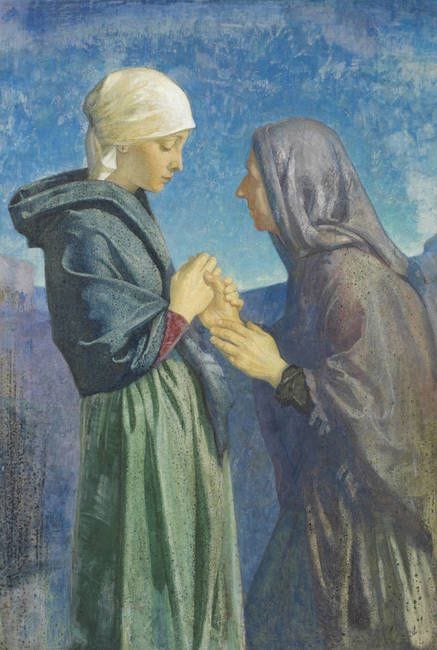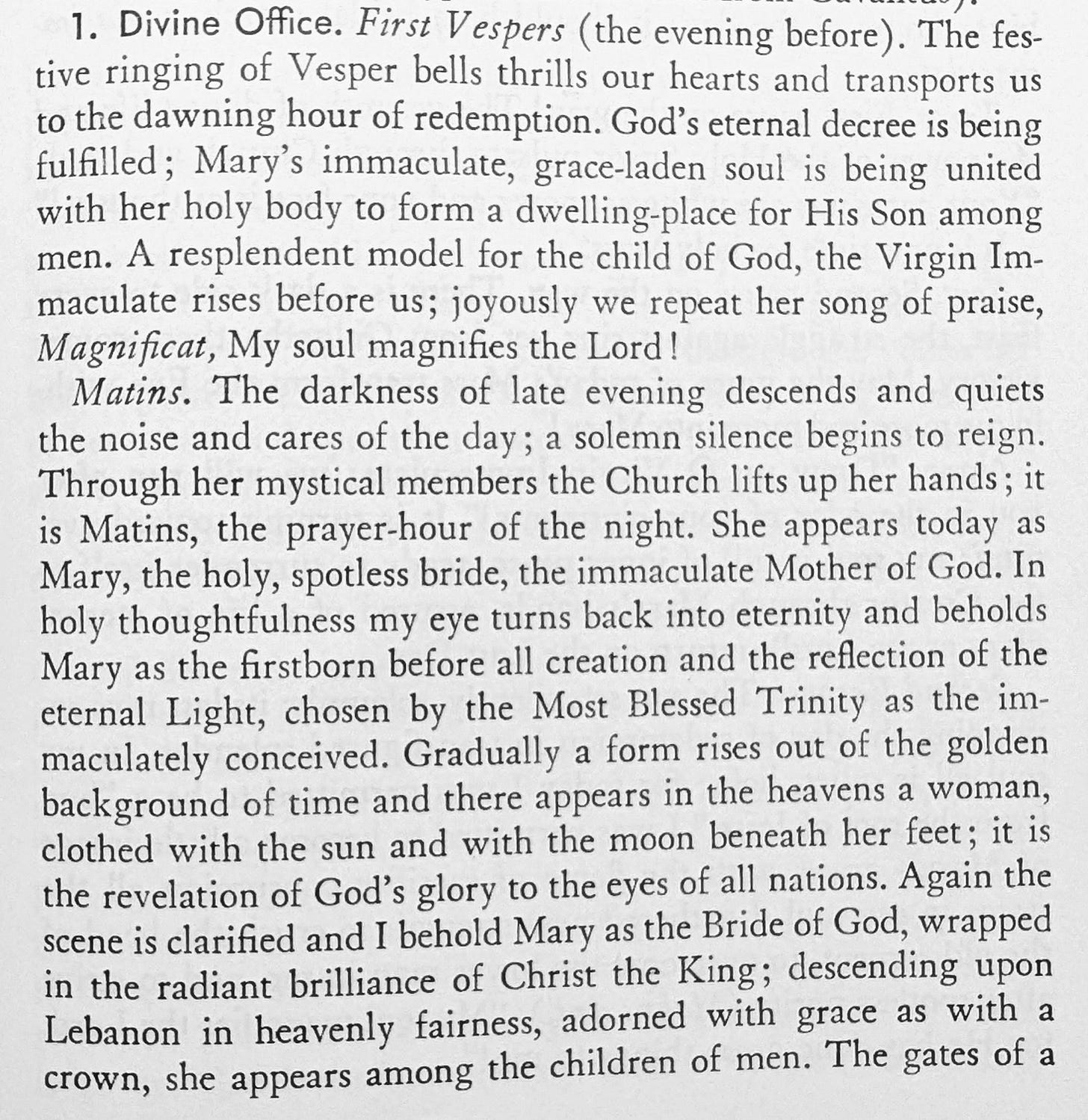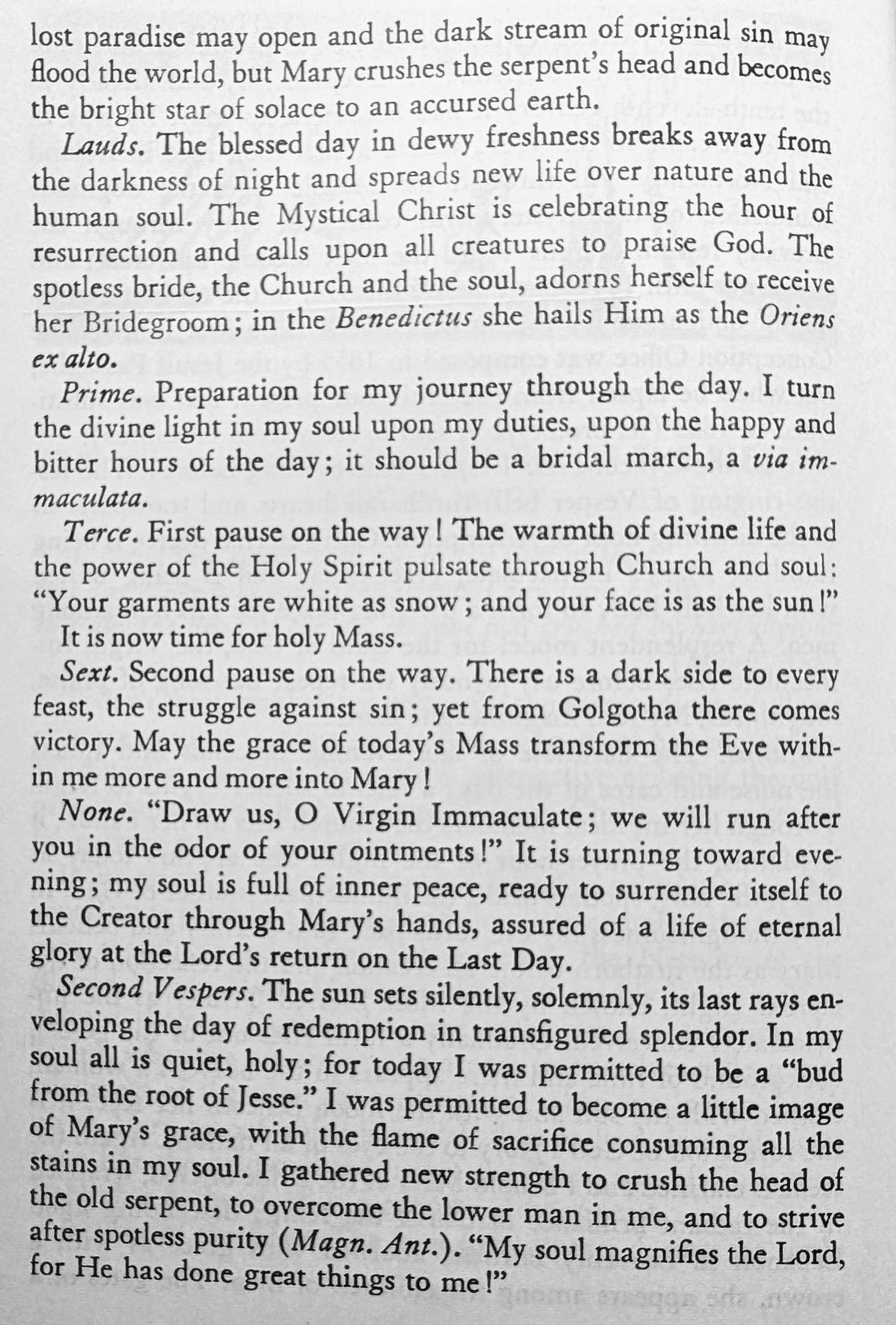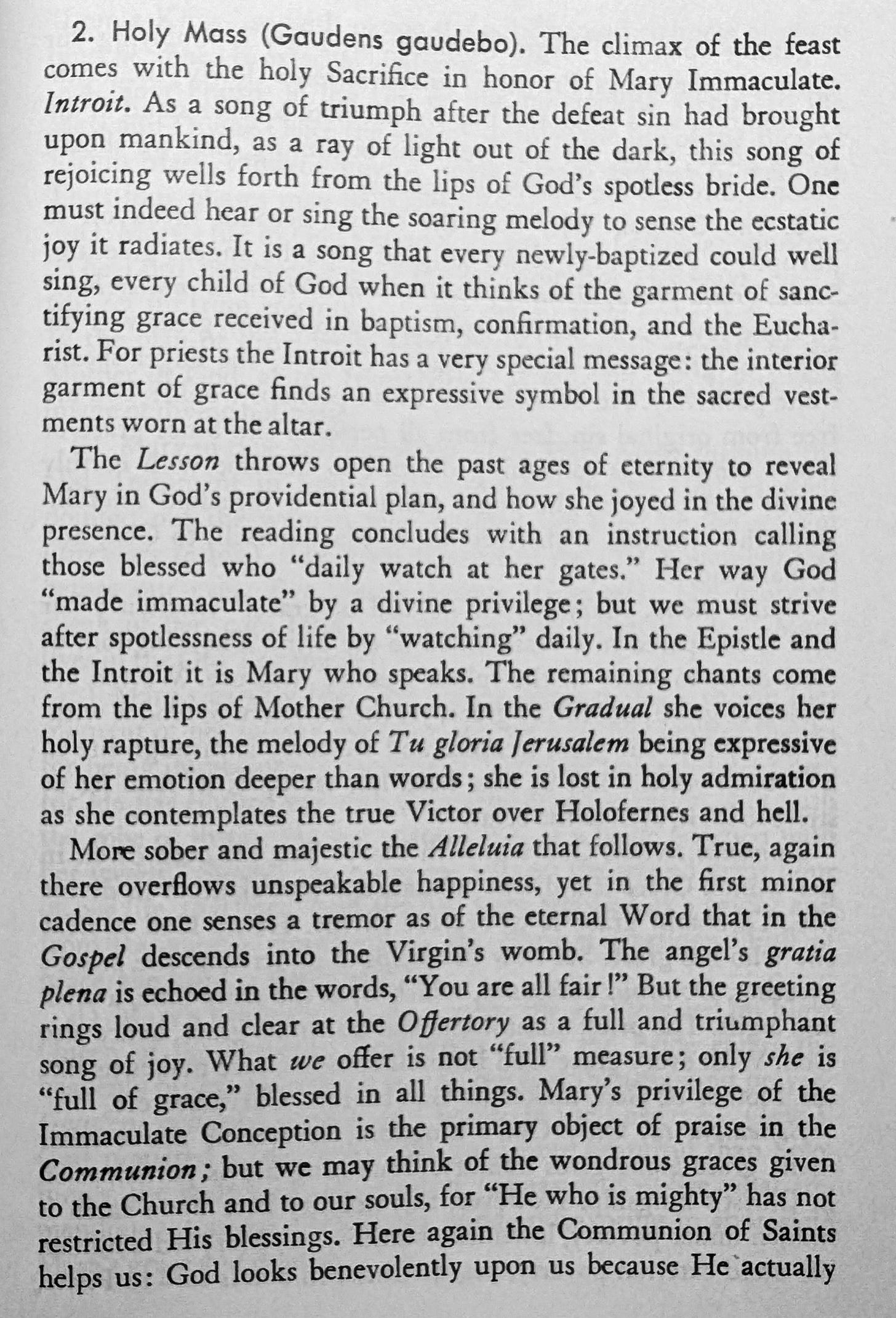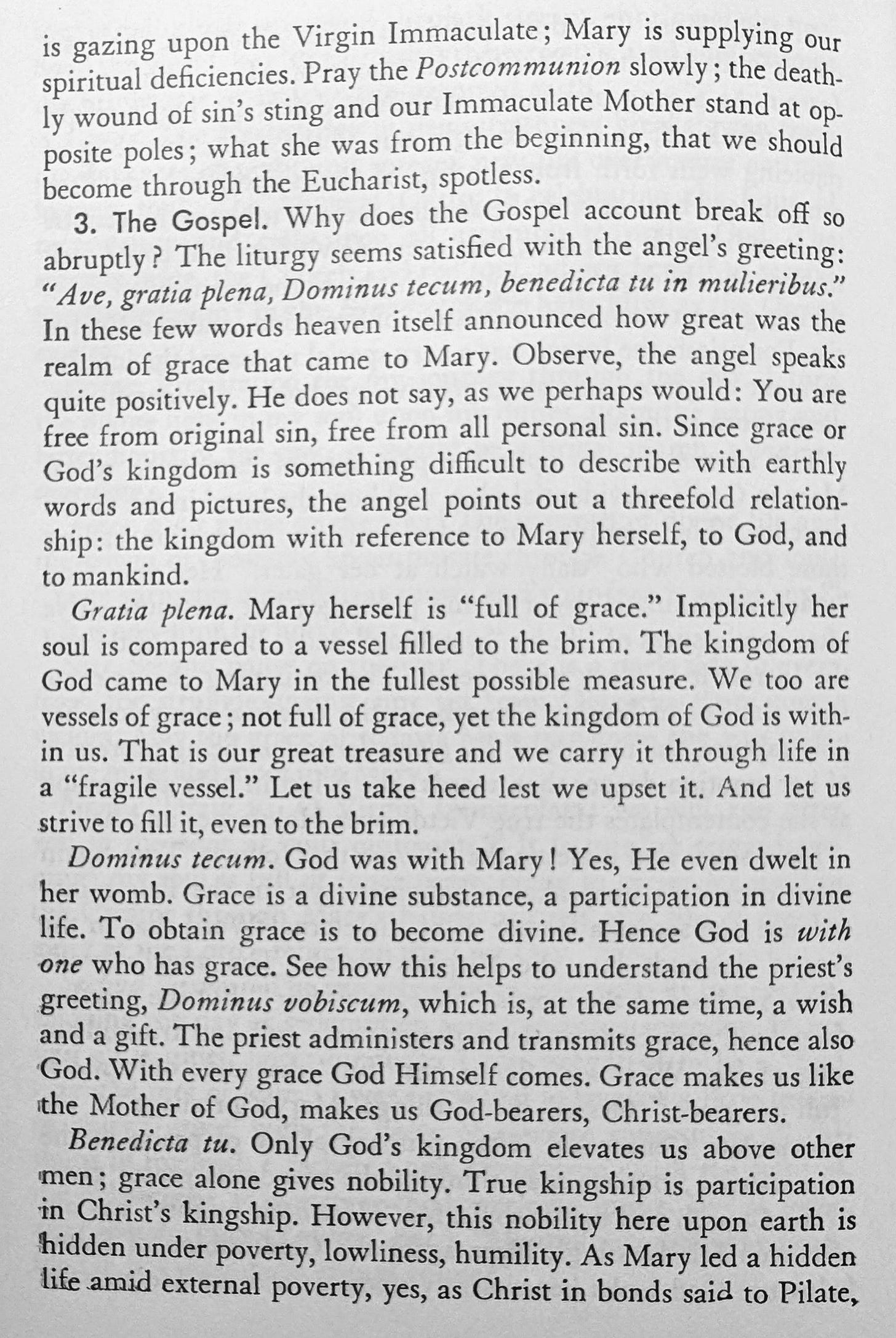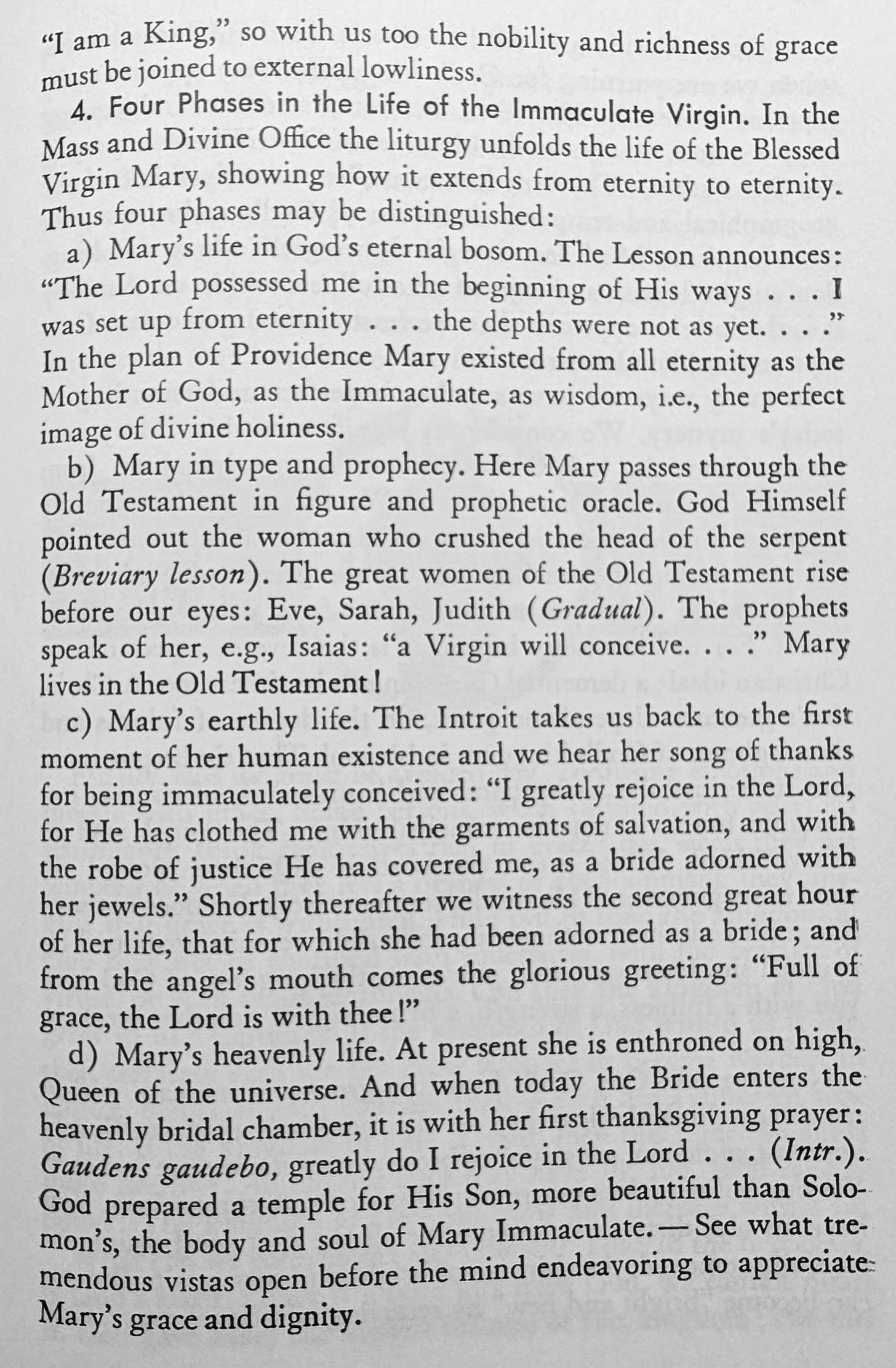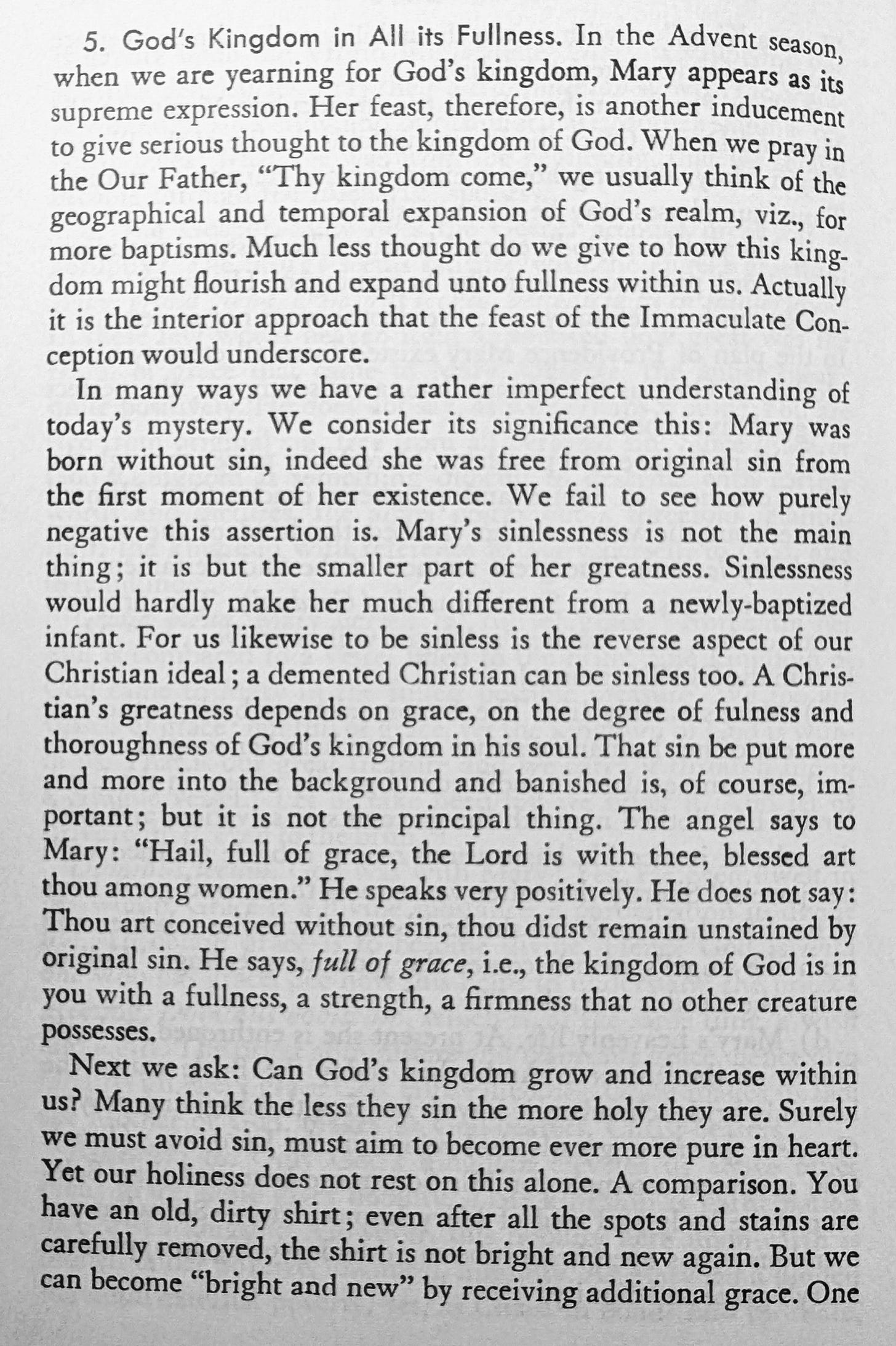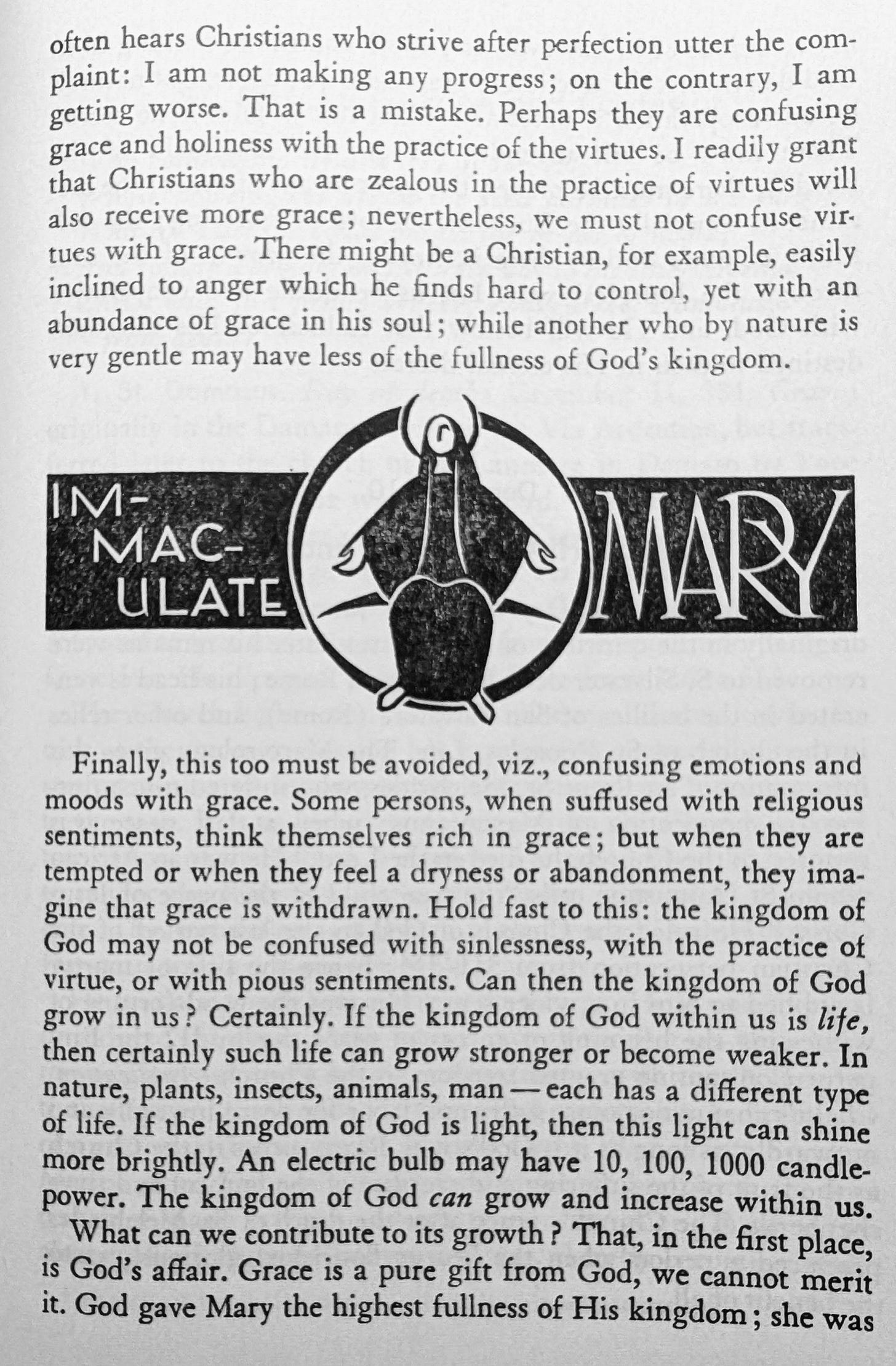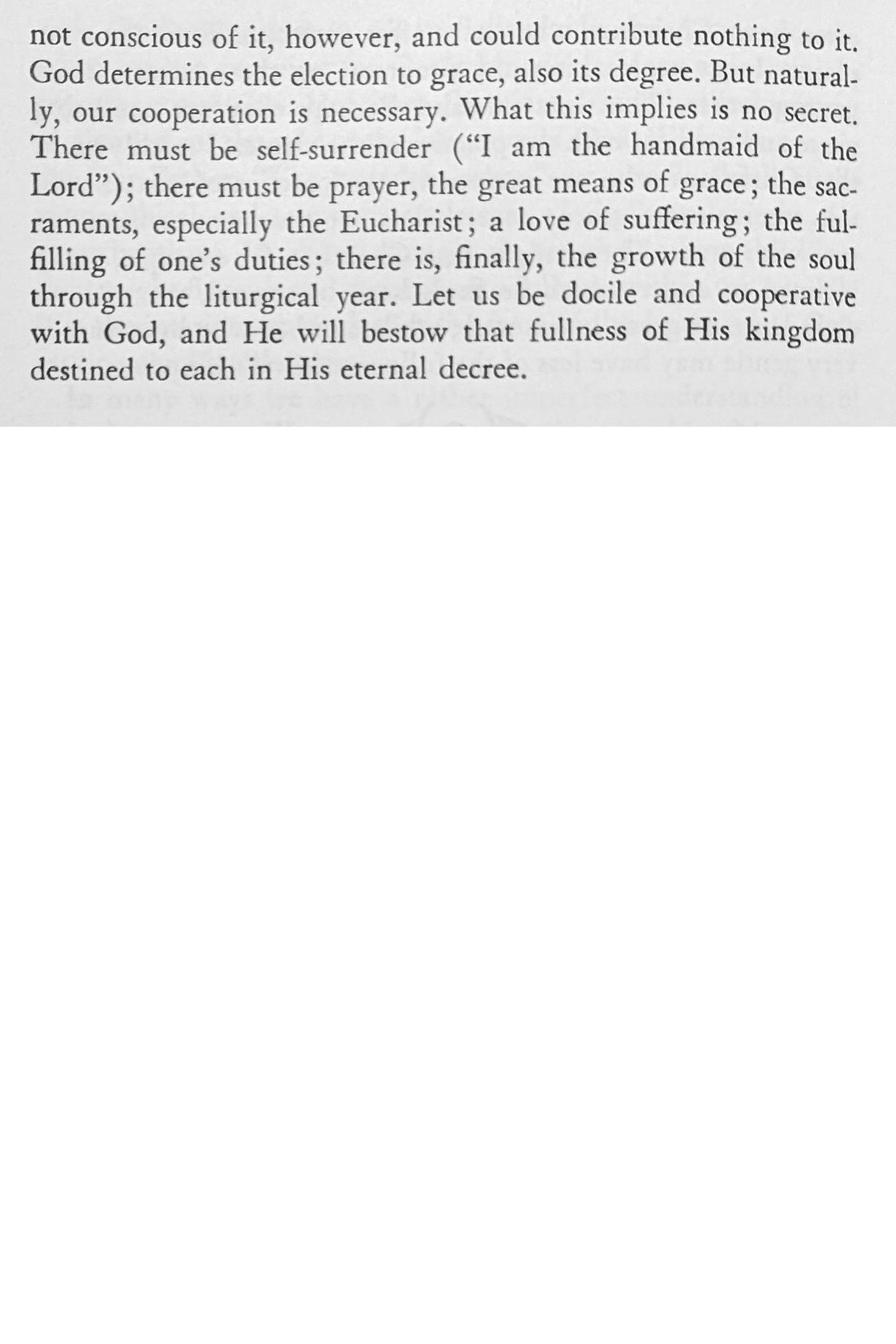The Solemnity of the Immaculate Conception of the Blessed Virgin Mary
What she was in the beginning, we must become in the life of the Church, the fulfillment of all that God has promised to Israel
Genesis 3:9-15, 20; Psalm 98; Eph 1:3-6, 11-12; Lk 1:26-38
The First Sunday of Advent told us that “the days are coming, says the LORD, when [he] will fulfill the promise [he has] made.” The Second Sunday of Advent reminds us that God had not forgotten his people, but will “lead Israel in joy by the light of his glory, with his mercy and justice.” The First Sunday began with the reference point of the Second Coming of Christ at the end of time. The Second Sunday looked back to the announcement of his First Coming in the flesh.
Today we celebrate a feast that had no historical connection to Advent: it is simply nine months before the Nativity of Mary, the day we remember her conception in the womb of her mother Saint Anne.
And yet it is the perfect feast to celebrate in the middle of Advent.
Of all the people throughout history, no one prepared the way of the Lord and made straight his paths better than Mary of Nazareth. Mary was preserved from all sin from the moment of her conception to be the first to welcome the coming of the Lord when she offered her obedience in her “yes” at the Annunciation.
The Solemnity of the Immaculate Conception celebrates how Mary, when she was conceived in the womb of her mother, Anne, was preserved from original sin and received the life of the Holy Spirit, full of grace from the first moment of her existence. Mary received the first fruits of Christ's victory before that victory happened in time, in a way proving that nothing is impossible for God.
We ought to have that same confidence and hope as we prepare for the great Feast of Christmas. We should believe that God can do something definitively new in our lives: that the past does not define us. Rather, it is God’s love for us, his faithfulness, that defines our destiny. What zeal this hope should inspire in us, to receive the inheritance of God’s promises! What must it mean for us, so often full of doubt and prevarication, for the promised Redeemer to come, who can open every door and enlighten every shadow?
Let us say “yes” to God’s plan, with Mary, by her assistance straightening out those pathways in our lives that the King had said he wants to enter in on — believe it or not, those pathways which you think are unworthy of his journey, for these are the roads he must take. Believe (you must believe! as Mary did! ask her to help you! or better said, ask her to give you her faith) that God can always do something new in our time, something surprising, something beyond what we have expected.
In honor of today’s feast, here are the pages on the Solemnity of the Immaculate Conception from Fr. Pius Parsch’s The Church’s Year of Grace, maybe the best thing you’ll ever read on it.
[**The Church’s Year of Grace, published in 1959 by one of the great fathers of the 20th century Liturgical Movement, Pius Parsch (1884-1954), a priest and Augsutinian Canon Regular of Klosterneuburg Abbey in lower Austria, is a profound exploration of the liturgical year as the Church's spiritual roadmap for uniting the faithful with Christ. Parsch emphasizes the Liturgy as the principal means by which Christians participate in the mysteries of Christ’s life, death, and resurrection. Through meditations on the liturgical seasons and feasts, he illuminates how the Church, guided by Sacred Scripture, integrates the story of salvation—from Israel’s covenantal history to the fulfillment of God’s promises in Christ—into the rhythm of the liturgy. Parsch presents the liturgical year as a dynamic recapitulation of Christ’s life, unfolding in a cycle that invites believers to interiorize His mysteries and draw strength from His grace. By reflecting on the life of Christ and the saints commemorated in the Church’s calendar, the faithful are encouraged to imitate their virtues and grow in holiness. The Liturgy, in Parsch’s vision, is not merely a set of rituals but a living, transformative encounter with the divine.]




